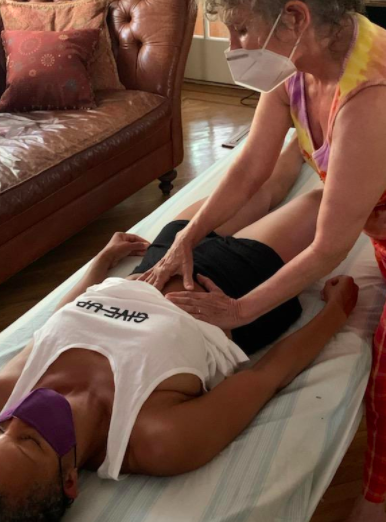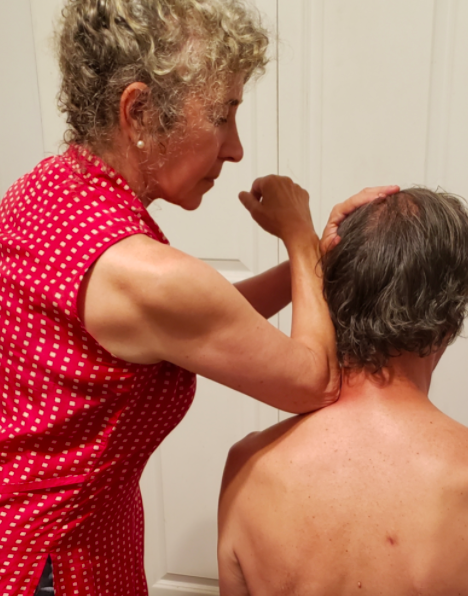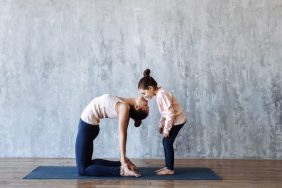While many of us opt for massages when we are sore, there’s a new form of pain relief that is gaining in popularity. And that’s Rolfing. Rolfing is a form of alternative medicine that aims to align the body in relation to gravity and, unlike massage, it works to change the structure of the body to achieve long-lasting results.
“Rolfers look at the body as a whole and seek to improve the entire structural pattern as dysfunction in one body part will have repercussions on the whole system,” says Beth Franzese, a certified advanced Rolfer and founder of Rolfing NYC. “Typically, we offer a series of ten sessions to work throughout the body. I cannot tell you how many times I’ve been working on a foot and the recipient feels sensation in the hip or lower back or even shoulder. As an example, if your hamstrings are too tight they can pull your pelvis into a ‘tucked under’ position, which alters your spinal curves and keeps you from being able to hold your head straight, so you have chronic neck pain. I can work on your neck pain, but it will always come back until we improve the support system from the feet on up. Of course, there are times we can use our techniques for an isolated issue.”

A Rolfer also doesn’t use typical massage strokes, which are designed for relaxation and to improve local circulation. Many people expect that Rolfing will feel like a deep tissue massage, but it doesn’t. “Our strokes move through the fascia, lengthening the tissue and relieving tightness. We are also affecting the autonomic nervous system and our work is done at a slow pace because that is how we can achieve maximum change and relief. There are many levels of fascia, so some of the work will be very light and some of it deep, but always slow and within the comfort level of the recipient.”

Can Rolfing benefit moms specifically? Yes!
Rolfing is extremely helpful for moms. “Ideally, a woman experiences the Rolfing series before pregnancy, but I have had many women come to me for relief of discomfort caused by the changes in their body while carrying, though it is not always a time to go through the series,” says Franzese. “It’s common for any bodyworker not to work on women in the first trimester. This is not because the work causes miscarriages, but because the frequency of miscarriages during that period is the greatest and no one wants to feel that they have contributed to that sad phenomenon.”
Postpartum is a great time to experience Rolfing. “Your body has been through so much disruption and nursing and carrying babies around creates additional stress on the structure. I have even Rolfed some new dads, who started having back problems while taking care of their children,” says Franzese.
Have you tried Rolfing? Would you?








